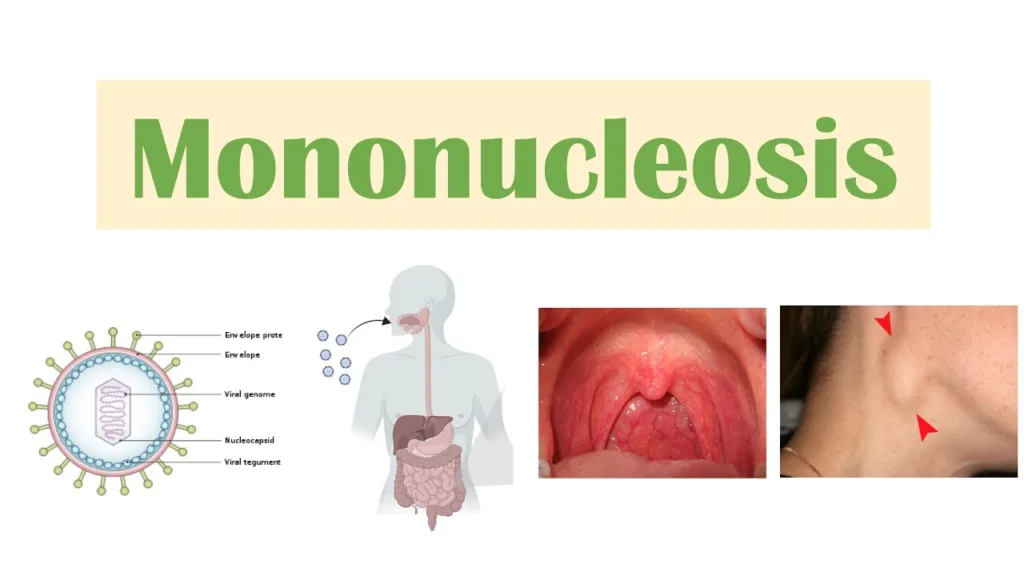Infectious mononucleosis, commonly known as mono, is a viral infection caused by the Epstein-Barr virus (EBV). Mono is often referred to as the “kissing disease” because it is primarily spread through saliva. However, it can also be transmitted through other bodily fluids like blood and semen.
Many people wonder if mono is considered a sexually transmitted disease (STD). While it is true that mono can be spread through sexual contact, it is not typically classified as an STD. This is because the virus is primarily spread through saliva, and sexual contact is just one of many possible modes of transmission.
That being said, some researchers do classify mono as an STD because of the intimate nature of the transmission. EBV is a member of the herpes virus family, which also includes the viruses that cause herpes and chickenpox. Both EBV and another form of herpes virus, cytomegalovirus (CMV), can be spread through intimate contact with saliva, genital secretions, and blood.
It is important to note that just because mono may be transmitted through sexual contact does not mean that all cases of mono are the result of sexual activity. In fact, many people contract the virus through non-sexual activities like sharing utensils or drinking glasses with someone who is infected.
Once a person is infected with EBV, they carry the virus for life. Even if they never experienced symptoms or have recovered from their initial infection, the virus can remain dormant in their body and reactivate at a later time. This means that a person can potentially transmit the virus even if they are not crrently experiencing symptoms.
While mono can be transmitted through sexual contact, it is not typically classified as an STD. It is primarily spread through saliva, and can also be transmitted through other bodily fluids like blood and semen. It is important to practice good hygiene and avoid sharing utensils or drinking glasses with others to reduce the risk of infection.
Is Mono A Virus Or STD?
Infectious mononucleosis, commonly known as mono, is a viral infection caused by the Epstein-Barr virus (EBV). It is not considered a sexually transmitted disease (STD). Mono is primarily spread through saliva, which can be transmitted through activities such as kissing, sharing utensils, or drinking from the same glass as an infected person. Therefore, it is important to practice good hygiene and avoid sharing personal items with anyone who is infected with mono to reduce the risk of transmission. It is also worth noting that whie mono is not an STD, some other sexually transmitted infections such as herpes and cytomegalovirus (CMV) can also cause similar symptoms to mono.

Can You Get STD From Mono?
Mono can be considered a sexually transmitted disease (STD) in cases where it is passed through sexual contact. However, it is more commonly spread through contact with saliva. Mono is caused by the Epstein-Barr virus (EBV), which is a member of the herpes virus family, along with the viruses that cause herpes and chickenpox. It is important to note that while mono can be transmitted through sexual contact, it is not primarily an STD and can also be transmitted through sharing of utensils, drinking glasses, or kissing.
Is Mono Included In STD Test?
Mono, also known as infectious mononucleosis, is not typically included in standard STD tests. However, it is important to consider the source of the infection when classifying STDs. Both CMV and EBV, which are both forms of herpes, can transmit through intimate contact with saliva, genital, or blood secretions of an infected person. Therefore, if a person presents with symptoms of mono and has a history of sexual contact, it may be important to test for othr STDs as well. However, if the symptoms are indicative of mono, a separate test specifically for mono may be required. It is always important to consult with a healthcare provider to determine the appropriate testing and treatment plan.
Can You Pass Mono Sexually?
Mono can be spread through sexual intercourse, although it is much less common than transmission through saliva. The virus that cases mono, Epstein-Barr virus (EBV), can be present in semen and vaginal secretions, which means that sexual contact can lead to transmission. However, it is important to note that the likelihood of transmission through sexual activity is generally lower than through kissing or sharing utensils and drinking cups. Mono can also be transmitted through blood transfusions or organ transplants, but these modes of transmission are also rare. It is important to practice safe sex and avoid sharing drinks and utensils to reduce the risk of contracting or spreading mono.

Conclusion
While mono is often referred to as the kissing disease, it can also be considered a sexually transmitted disease (STD) due to its ability to spread through sexual contact. The Epstein-Barr virus that causes mono is a member of the herpes virus family, which also includes the viruses that cause herpes and chickenpox. Although some researchers choose to overlook mono when classifying STDs, it is important to consider the source of the infection, as both CMV and EBV, both forms of herpes, require intimate contact with saliva, genital or blood secretions of an infected person. While mono can also spread through blood transfusions and sexual intercourse, it is less common than transmission through saliva. It is important to note that people who have been infected with mono carry the virus for life, even if they had no symptoms, and the virus remains dormant or inactive. Therefore, it is essential to practice safe hygiene and avoid sharing food utensils or engaging in intimate contact with infected individuals to prevent the spread of the virus.
